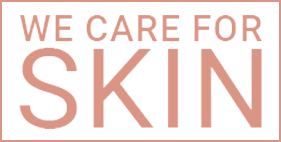Everyone would love to have that perfect youthful skin. Because of this,we are bombarded with many “promising” anti-aging treatments. But is coffee bad for skin aging? Let us find out and debunk skin aging myths.
What is Skin Aging?
Aging is a natural process in our life cycle and persists until the end of our life span. But what makes the definition vague is that people age not just physically, but also mentally and psychologically.
Let us focus on one of the first things that comes to mind – skin aging. The entire body is covered with skin, and this acts as the barrier that protects us from the external environment.
As the skin ages, its outer layer or the epidermis becomes thinner. The body produces fewer pigment cells, and the skin’s elasticity reduces as the connective tissues lose their strength. Also, blood vessels within the second layer of the skin, the dermis, become more fragile.
So what would all these mean? Over time, the skin can develop fine lines, wrinkles, and hyperpigmentation. The skin can also become less elastic and less plump, leading to a droopy appearance. Moreover, the aged skin can easily develop bruising or bleeding under the skin.
Is Coffee Bad for Skin Aging?
Our fast-paced life bombards us with many stressors that speed up skin aging. Stress, diet, sleep loss, UV rays – all of these are confirmed to be bad for skin aging. But here is a controversial one: how about coffee? Is coffee bad for skin aging?
A usual morning routine usually involves a nice cup of coffee. Aside from its fresh taste, drinking coffee provides the body with positive effects such as increased well-being, energy boost, and alertness.
But too much of this can give you unwanted symptoms like nervousness, anxiety, jitteriness, and migraines. Plus, you would have trouble falling asleep!
Being too dependent on caffeine can also bring some bad news for your skin, and here is why:
-
Coffee can dehydrate the skin. Do you notice that you need to pee more when you drink this beverage? This is due to the diuretic property of coffee. Unfortunately, this may dehydrate the body and the skin, leading to a duller and less plump appearance.
-
Coffee triggers the release of cortisol. Cortisol is a stress hormone. Essentially, a high cortisol level means that your stress response is triggered. This matters for the skin because high cortisol makes you prone to breakouts and speeds up skin aging.
-
Coffee causes less sleep. When you drink too many cups a day or very late in the afternoon, the caffeine boost can disturb your sleep cycle. Our body naturally recovers during deep sleep. With inadequate sleep or poor quality of sleep, the skin can age faster.
-
Coffee can constrict vessels. As blood circulation thins out, blood-carrying oxygen depletes, leading to a duller complexion and the development of wrinkles.
However, coffee is not all that bad, as long as you drink a healthy amount of it. It is best to limit yourself to one or two cups a day and avoid drinking it late in the afternoon to avoid sleep problems. Also, combat dehydration by drinking a cup of water for every cup of coffee that you take!
The main idea is to avoid excessive intake of caffeine. So if you love the taste of coffee, you can also choose decaf to cut down on excess caffeine.
So, there is always a way to make coffee work for you without having to sacrifice your skin’s appearance and aging.
Debunked Skin Aging Myths You Need to See
Now that we are clear on coffee and how excessively drinking it pushes the skin to age faster, we can discuss some other skin aging myths. Social media plays a huge role in spreading information about skincare and aging. However, be vigilant as not all are proven to be true!
What are other skin aging myths out there? Here are some debunked skin aging myths:
The first thing to notice about skin aging is wrinkles.
If you worry about whether it is time to use anti-aging skincare, do not wait for wrinkles to show up. According to dermatologists, the face would have discoloration, fine lines, and uneven texture long before wrinkles develop.
Some would notice dark spots around the face and neck, and a bunch of dark circles and skin creases around the mouth as early as in their 20s. Hence, waiting for wrinkles to show up is not an accurate starting point in saying when our skin is going to the “aging” spectrum.
Wrinkles can disappear with the use of anti-aging products.
As magical as it sounds, there is no clear evidence that anti-aging products can erase wrinkles. What they can do, however, is minimize the appearance of fine lines. Topically applied ingredients like retinol are proven to minimize these. On the other hand, procedures such as botulinum toxin injections, skin resurfacing, microneedling, etc are treatments that can improve the skin’s texture.
Your diet will not affect skin aging.
It is always best to look out for what you eat because all these can affect your skin! The largest culprit for skin aging is food with high glycemic indices, such as white bread, pasta, and potatoes. These foods convert to glucose in the bloodstream and form Advanced Glycation End Products or AGEs. Lots of AGEs in the bloodstream can diminish the elasticity of the skin’s collagen, leading to faster skin aging.
Aging depends on your genes.
You cannot always blame your parents for the genes they imparted to you, especially on skin aging. Essentially, your mom’s aging timeline will not necessarily be the same as yours.
Aside from the genetic predisposition to aging, there would always be extrinsic factors that may accelerate the natural skin aging process. Extrinsic factors include too much exposure to UV rays, constant exposure to pollution, diet, stress, and much more.
The higher the price tag, the more effective it is
Expensive anti-aging products lead to higher expectations of the product’s effectiveness. But, it is not always the case!
Not all expensive anti-aging products can provide glowing skin. As experts say, the pricing of these products depends more on the company’s branding and marketing. Sometimes, a simple routine such as daily use of sunscreen and moisturizer is better than intermittent use of expensive anti-aging products.
Real Anti-Aging Tips
It is never too early to begin your anti-aging regimen. Even in your 20s, it is already advisable to begin an anti-aging regimen to delay the development of fine lines and wrinkles. Remember, once these are seen on the skin, it can be difficult to erase them!
Here are some simple anti-aging tips for you:
-
Always get enough sleep. Remember how coffee is bad for the skin because it can mess with your sleep cycle? Having less sleep means that the skin cannot go with its natural rejuvenation at night. So, always have more than five hours of sleep at night!
-
Avoid rubbing your eyes and face. Too much tugging, rubbing, and pulling of the skin, especially around the eyes, can lead to faster development of wrinkles. These motions can put a lot of pressure and irritation on the skin, leading to inflammation and darkness around the eyes.
-
Always put on moisturizer. Dehydrated skin is very vulnerable to skin aging. So, always put on your favorite moisturizers daily to help lock in moisture and minimize the effects of UV rays on the skin.
-
Put sunscreen on your hands and neck. Do not just focus all the anti-aging regimen on your face! Aging skin can also be reflected on the neck and hands as these are also significantly exposed to UV rays. So, prevent early fine lines and discoloration on the hands and neck by applying SPF here as well.You can opt for oral supplements like collagen. Aside from topical products, your anti-aging regimen can also involve oral supplements. For example, Gloww Collagen is a supplement containing 2,500 milligrams of collagen hydrolysate. This collagen supplement can help keep your skin healthy, soft, and youthful.
Conclusion
There are indeed a lot of skin aging myths out there, and finding out the truth does not have to be complicated!
Is coffee bad for skin aging? When drinking too many cups a day, then yes, it will make the skin age faster. But by keeping your intake to one to two cups a day, then you would not worry about it.
Furthermore, there are simple ways to make your skin retain its youthfulness! Moisturize, use sun protection, and intake of supplements are effective tips for you.
References:
-
https://www.wecareforskin.net/articles/habits-that-contribute-to-premature-aging-skin
-
https://www.realsimple.com/beauty-fashion/skincare/anti-aging/anti-aging-myths
Article Reviewed by: Dr. Mary Amy Fatima Cagayan Chua



